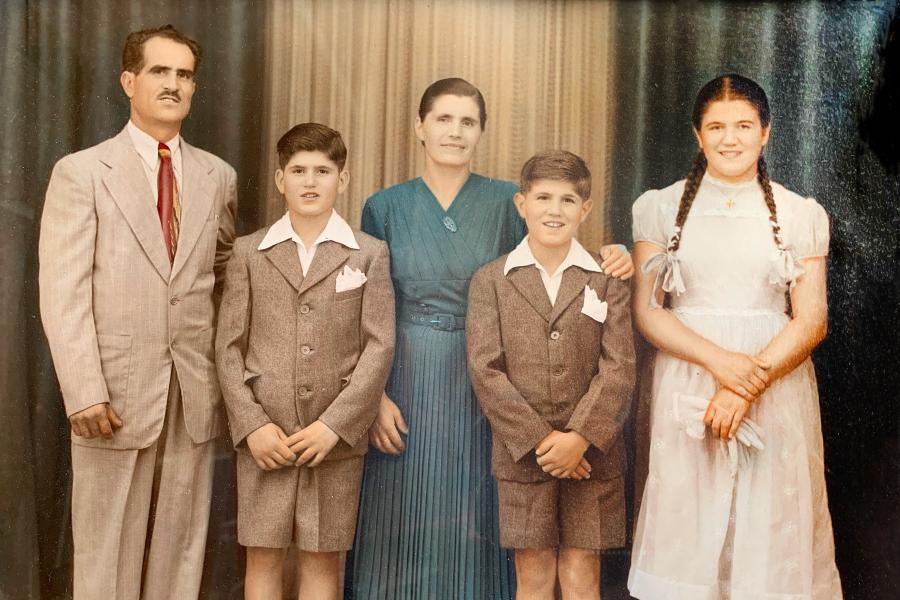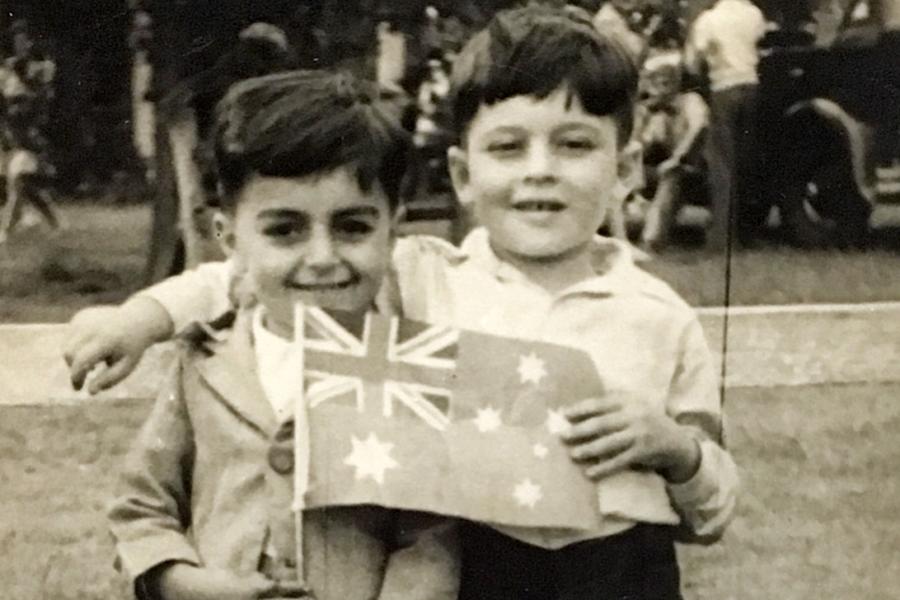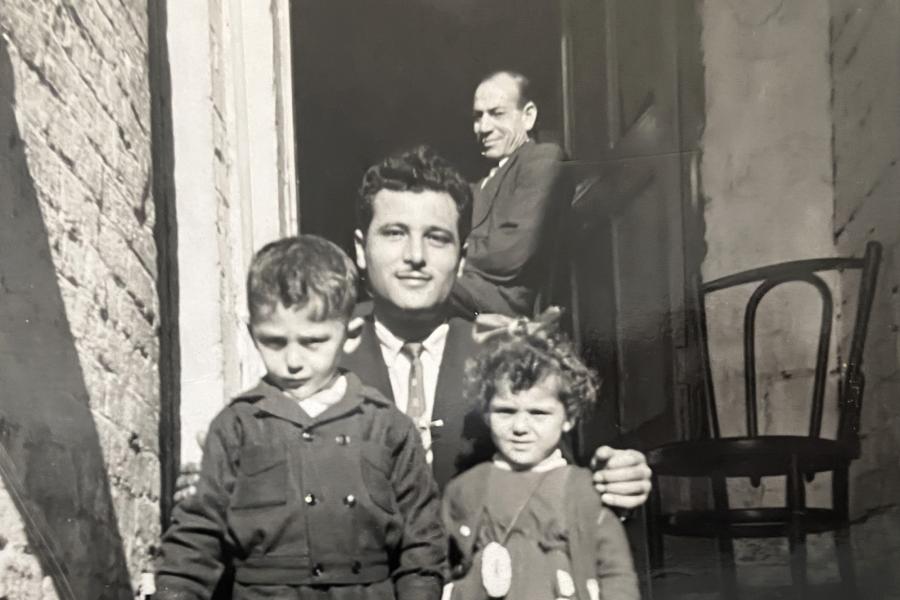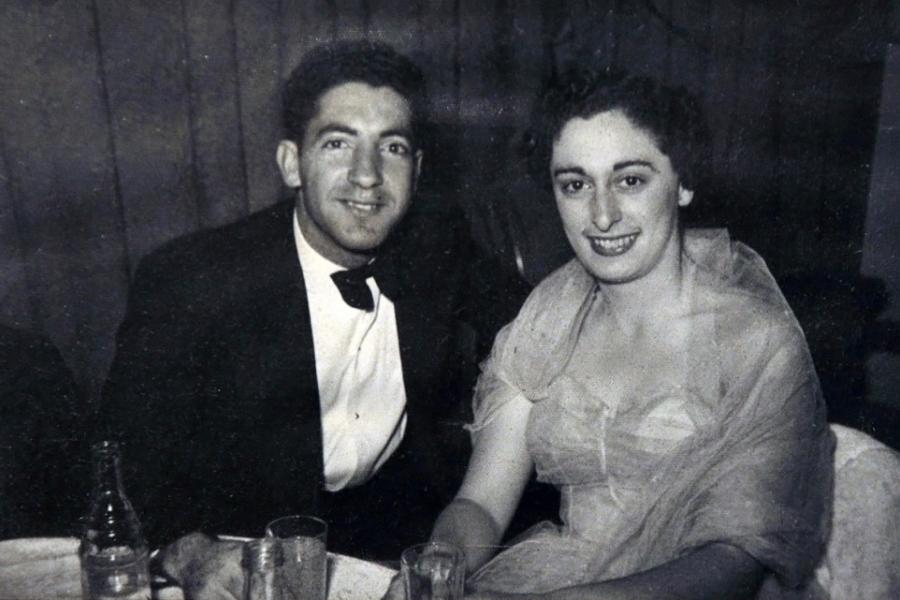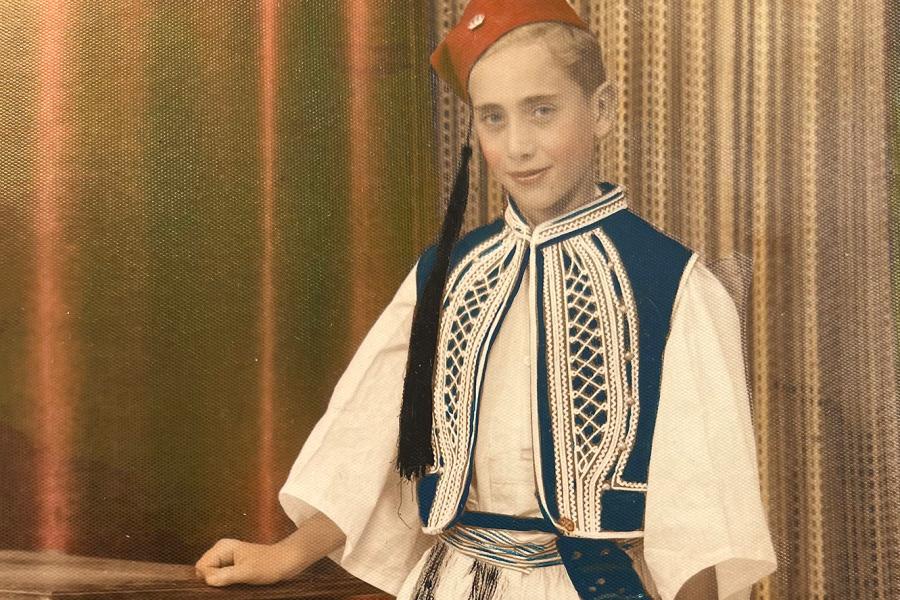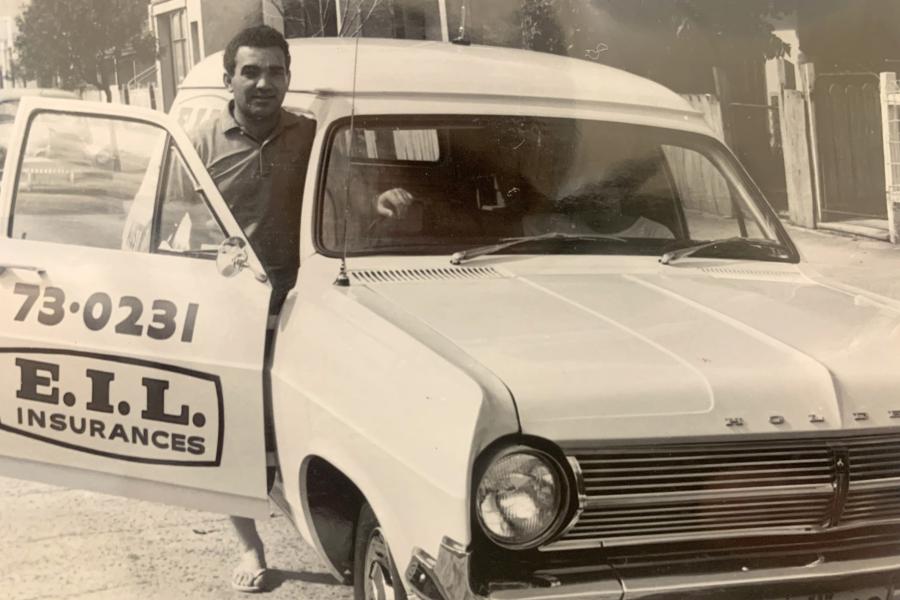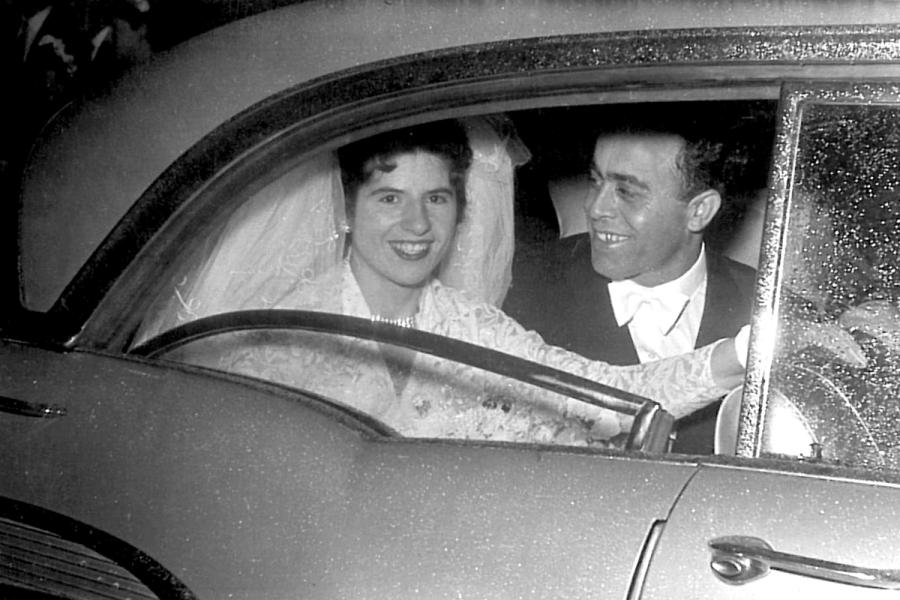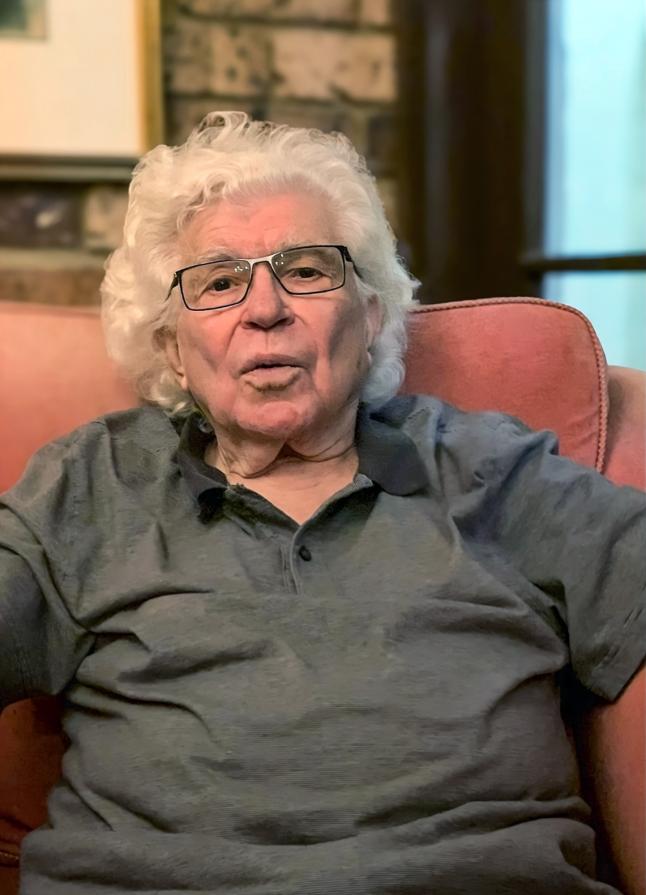

Speaker background
Michael Philippou Miltiades was born in Limassol, Cyprus in 1929. His ambition was to become a barrister. In 1949, he paid his own fare to Sydney to explore opportunities for a tertiary education. On arrival, Michael connected with the Cypriot community and joined the Greek Atlas Club. In 1951, he met his future wife Berenice Bennell, who was a member of the Eureka Youth League. Against the wishes of the community and the bride’s family, the couple married and moved to Mount Isa, where Michael worked underground in the mines and, later, in the geology office, analysing the profitability of mining ore. He lived and worked in Mount Isa for six years, becoming a Foundation member of its Greek community organisation. Michael and his family returned to Sydney, where he established a successful career in the takeaway food industry.
Interview summary
Michael discusses his early days in Sydney and the political and social connections he made through the Greek Atlas Club. He outlines his efforts to raise awareness about the plight of political prisoners in Greece during the Civil War and the upheavals following the Turkish invasion of Cyprus. He recounts the condemnation he and his Australian wife, Berenice, endured when they announced their decision to marry, his mining work in Mount Isa and the chain of fast-food shops he established.
Interview highlights
highlight
Michael recounts his early days in Sydney and the support he received from the Greek Atlas club.
Michael: I didn’t know anybody. For some strange reason I think maybe one of the pilots recommended this hotel, a hotel in George Street, full of mosquitoes. I stayed in the hotel for a couple of days till I got sent on through the Atlas Club. I liked the Atlas Club; they were members of the Seaman [Union], plus a mix of other members of the Greek community.
Interviewer: So, you went to the Atlas club within, what, the first day you arrived?
Michael: The first day somebody took us there, somebody told us about the Atlas Club.
Interviewer: Who’s somebody, in Sydney or in Cyprus?
Michael: In Sydney
Interviewer: That was in the city at the time?
Michael: In the city, yes.
Interviewer: What did you discover about the club? What did they do?
Michael: Well, the club had a soccer club. It had a dancing club, a dancing sub club or a dancing group. It had an educational group, anything that is involved with the culture of the Greeks.
Interviewer: If you could just explain how the Atlas Club help you as a 20-year-old young man, just newly arrived. What assistance did they provide you?
Michael: Well, they provided accommodation assistance. They recommended a room in Stanley Street in Sydney and, also, I was attracted to their culture, motivation. Culture to the soccer club, we were the first soccer club formed in Sydney.
Timecode 07:51 - 10:10
highlight
Michael describes the condemnation he endured when he married his Australian wife.
Michael: The fact that being a good-looking girl. She was a very good-looking girl. She was a member of my mob too you see.
Interviewer: She wasn’t Greek, she wasn’t Cypriot though.
Michael: No, it doesn’t matter.
Interviewer: Did that bother you?
Michael: Well, it didn’t bother me, but it bothered my followers.
Interviewer: Tell us about that. What was the reaction by other members?
Michael: When I was Secretary of the Club, I was getting 99 percent of the votes and when I married my wife, or when I used to go out with them, they used to come to me and say ‘What? You don’t like the Greeks? You married an Australian.’ I said, ‘I want to show the Australians and the Greeks that we can co-exist.’ That’s why I married my wife.
Interviewer: How long did it take for you to convince them that this was a good thing?
Michael: Well, I convinced some of them, yeah. They said, ‘You’ll see. You’ll divorce in a few months’ time.’ I said, ‘You take it from me. We’ll see you divorce with your wife, your present wife that is Greek, than me married to an Australian.’
Timecode 33:24 - 34:47
